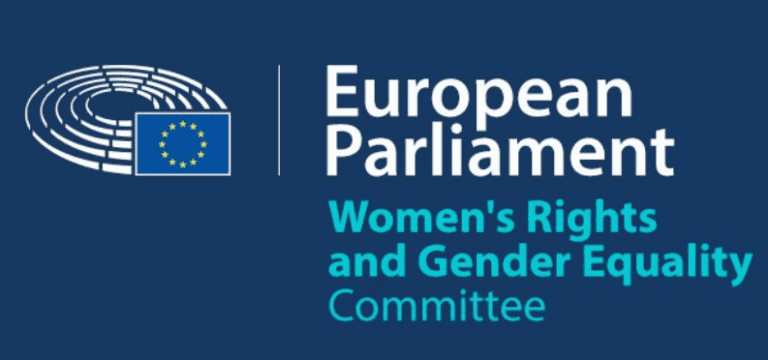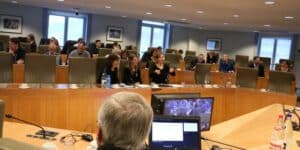On Wednesday 28th June 2023, the European Parliament’s Committee for Women’s Rights and Gender Equality (FEMM) and the Civil Liberties, Justice and Home Affairs (LIBE) Committees voted on their position on the proposed EU Directive on combating violence against women. The report was adopted with 71 votes in favour, 5 against, and 7 absentees. This proposed Directive aims to improve the EU’s approach to combatting violence against women and to ensure the better protection of victims. It also criminalises rape based on lack of consent, female genital mutilation and cyber violence, which includes non-consensual sharing of intimate images; cyber stalking; cyber harassment; and cyber incitement to violence or hatred. It also strengthens access to justice, including for victims with disabilities.
But, how will this law protect deaf women and girls?
Firstly, it bans forced sterilisation without free or informed consent, with no exception based on disability. Secondly, it requires that all actions to prevent violence against women are inclusive and accessible. For instance, by ensuring that information on preventive measures, the rights of victims, access to justice and to a lawyer, as well as the available protection and support measures are all available in an accessible format for persons with disabilities, including deaf people. This provision is of particular importance for deaf women and girls in the EU, due to the barriers with regards to accessibility of communication and information they face. It is therefore crucial that the previously mentioned information and measures are made accessible in all 31 of the EU’s national sign languages.
A further measure requires the training for professionals on the rights of victims with disabilities and on the necessity to deliver disability-sensitive support to victims – for deaf people this would mean deaf awareness training due to the unique linguistic and cultural aspects of their communities. Furthermore, the proposed directive requires that reasonable accommodations are provided for victims with disabilities who are seeking support. For deaf women and girls this would mean the provision of professional, national sign language interpreters to ensure their experiences can be communicated to support workers, for the correct support to be offered to them.
Finally, the Directive obliges Member States to collect data on violence against women at national level, and for this data to be disaggregated by disability. For this data to be accurate and comprehensive, the data should be disaggregated by disability group, for instance, deaf women and girls. In this way, a fully inclusive and accurate overview of the extent to which certain groups of women and girls are being subjected to this sort of violence. Consequently, this will mean targeted measures are taken to ensure each group can receive tailored support on a case-by-case basis.
EUD will continue to monitor the progress of this Directive, and advocate to ensure that the Directive, in its final form, will be ambitious, and fully inclusive of deaf women and girls. For more information on this, read the European Parliament’s press release on the report εδώ.












